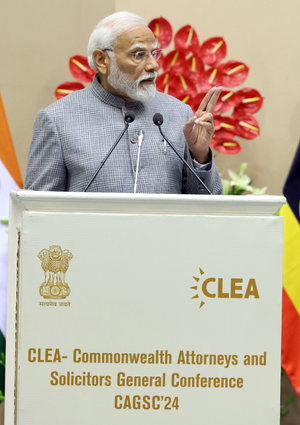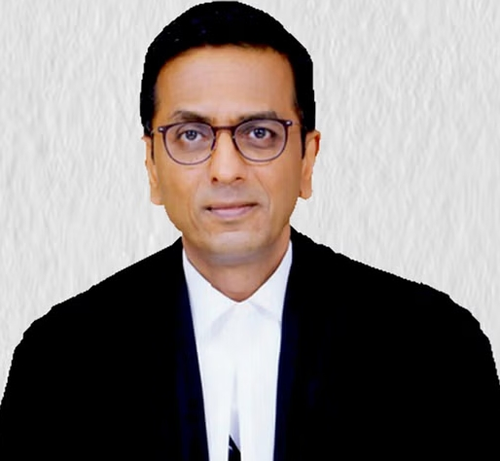India
A sweet victory for unmarried women of Rajasthan as anganwadi positions open for them

Jaipur, Feb 1 (IANS/101Reporters) When there is no condition of marriage for men to get employed in any government department, why should that be imposed on women who strive to become anganwadi workers? That was what piqued Madhu Charan (26) to launch a legal battle against the Rajasthan government over a rather strange constraint that has been in force in the state for more than two decades.
An unmarried woman hailing from Gugdi in Pachpadra block of Balotra district, Madhu approached the Rajasthan High Court (HC) against the marriage clause for getting anganwadi job. On September 4 last year, the HC ruled in her favour and declared the condition of women being married as “illegal, illogical, arbitrary and unconstitutional”.
“I fought in the HC for four-and-a-half years… This was not my fight alone, but of all the women in the state. This was to get justice for everyone,” she told 101Reporters with a steely resolve.
“The HC has held in its judgment that depriving a woman of public employment on the basis of her unmarried status is a violation of the fundamental rights granted to a woman under Articles 14 and 16 of the Constitution of India. The court termed it an attack on the dignity of women. Respecting the HC decision, the government should have immediately removed this condition. However, the department has not issued any order yet,” she added.
Explaining how the case came about, Madhu’s father Muldan Charan said the Women and Child Development (WCD) Department had issued an advertisement in June 2019 to fill the vacant post of an anganwadi worker in their village. “My daughter tried to apply, but she was not allowed because she was unmarried. Subsequently, I sent her application by speed post to the office of the Child Development Project Officer [CDPO], Pachpadra, but even that was not considered.”
“I am a small farmer, but I stand with my daughter on this issue. Even if we had to go to the Supreme Court, we would have definitely gone,” he asserted.
Even today, people of Rajasthan hesitate to send their girl children out of their villages for work. They think it is better for women to get employed in their villages itself. In line with this thought process, unmarried girls in the state have been submitting memorandums to the department officials following the HC judgment, demanding that they be appointed in anganwadis.
“A few months ago, we invited applications for anganwadi workers’ posts for the villages in Chitalwana block. Referring to the HC decision, many unmarried women then submitted a memorandum demanding that they be appointedt to these posts. We have written to the Jaipur headquarters seeking their views,” Ashok Bishnoi, Child Development Project Officer (CDPO), WCD Department, Jalore, told 101Reporters.
Stubborn first, somersault later
Despite the HC ruling, the WCD Department initially cold-shouldered the matter. It sought the opinion of the government lawyer, who recently recommended that the government should appeal against the ruling in the HC Division Bench.
Justifying the department’s stand, Krishna Kumar Sharma, the WCD Department’s Acting CDPO for Pachpadra block, told 101Reporters that the intention behind the condition of female applicants being married was to run the department smoothly. “Unmarried women will most likely shift to other places after marriage. The department then will have to make efforts to refill those posts,” he maintained.
Nevertheless, in a meeting held on January 23, it was decided to not appeal against the judgment. Instead, the department will start allowing unmarried women to apply for the anganwadi worker posts.
Mahesh Kumar, Law Officer, WCD Department, Jaipur, told 101Reporters that the issue was discussed at the pre-litigation committee meeting held under the chairmanship of the WCD Department secretary in Jaipur on January 23. “In the meeting, it was decided not to appeal. The government will now make new rules for this,” he informed. The work on this front is likely to be completed soon.
On the contrary, the condition of being married is still imposed for appointments made at anganwadi centres in the state. The Office of the Deputy Director, WCD Department, Hanumangarh, recently issued a release to fill 69 vacant posts of anganwadi worker/helper, mentioning it was mandatory for anganwadi workers to be class 12 pass and married.
‘A violation of fundamental rights’
Coming down on the marriage clause, Rehana Rayaz Chishti, former chairperson, Rajasthan Women’s Commission, told 101Reporters that the marriage clause was completely wrong. “Whether married or unmarried, every eligible woman should get a chance. This is their constitutional right. Depriving a woman of working as an anganwadi worker just because she is unmarried is a violation of fundamental rights,” she reasoned.
“I do not know under what circumstances the condition of being married was imposed, but now the HC has declared this condition unconstitutional. Hence the government should respect this decision and give an opportunity to work to unmarried women,” she added.
Chandrakala Sharma, director (coordination), Ekal Nari Shakti Sansthan, an NGO fighting for the interests of single women in Rajasthan, said that depriving women of work because they were unmarried was a sign of anti-women mentality.
“If the department whose very name is Women and Child Development Department does not provide work to women, then how will women develop? Will the rights of single women get lost by not marrying? Do single women not need any work to earn a living?” she wondered.
Chandrakala said there were thousands of women who did not wish to marry, or did so late in life. If unmarried women are given the opportunity to work in anganwadi, they will gain experience. While this experience will be useful in their personal lives, they will also benefit from this experience if they get an opportunity in another anganwadi at another place after marriage.
Anganwadi worker Rani Jinagal of Amar Pura Theri village in Hanumangarh district also favoured employment of unmarried women in anganwadis. “When there is no condition for men to be married to get jobs, why is it being imposed on women only?”
There are more than 62,000 anganwadi centres across the state, with each having a worker and a helper. This fact itself shows how important is the legal victory that unmarried women in the state have achieved.
(Amarpal Singh Verma is a Rajasthan-based freelance journalist and a member of 101Reporters, a pan-India network of grassroots reporters.)
India
Without justice existence of any nation is not possible: PM Modi

New Delhi, Feb 3 (IANS) Prime Minister Narendra Modi on Saturday said that without justice the existence of any nation is not possible.
“Justice is at the root of independent self-governance and without justice even the existence of any nation is not possible,” Modi said while during the inauguration of the Commonwealth Legal Education Association (CLEA) – Commonwealth Attorneys and Solicitors General Conference (CASGC) in New Delhi.
He said when a society collaborates that it is easy to understand each other’s system better.
“Greater understanding brings greater synergy; synergy boosts better and faster justice delivery,” he said.
The theme of the conference was ‘Cross-Border Challenges in Justice Delivery’. The conference will deliberate on important issues pertaining to law and justice like judicial transition and the ethical dimensions of legal practice; executive accountability; and revisiting modern-day legal education, among others.
Throwing light on the radical changes in the nature and scope of crime in recent times, PM Modi pointed out the vast networks created by criminals across countries and their usage of the latest technology both in funding and operations.
He also drew attention to the fact that economic crimes in one region are being used to fund activities in other regions, and the challenges of the rise of cryptocurrency and cyber threats.
He also highlighted that reform cannot take place without making the justice system more citizen-centric as ease of justice is the pillar of justice delivery.
On Lok Adalats or ‘people’s court’, he said that it provides a settlement mechanism for small cases related to public utility services and is a pre litigation service where thousands of cases are resolved while ensuring ease of justice delivery.
Giving insights into realising the potential of women in every domain, PM Modi suggested making each domain inclusive at the educational level.
He said that an increase in the number of women in law schools will lead to an increase in the number of women in the legal profession.
He also suggested exchanging ideas on how more women can be brought into legal education.
PM Modi pointed out that India’s legal system was inherited from colonial times, but the last few years have witnessed a record number of reforms.
He mentioned the abolition of thousands of obsolete laws from colonial times, some of which had the potential to become tools to harass people, and underlined that it has boosted ease of living and ease of doing business.
“India is also modernising laws to reflect the present realities,” Modi said, highlighting that the three new legislations have replaced more than 100-year-old colonial criminal laws.
“Earlier, the focus was on punishment and penal aspects. Now, the focus is on ensuring justice. Therefore, citizens have a sense of assurance rather than fear,” he said.
India
Tasking Ahmed requests BCB to not consider him for Test cricket: Report

New Delhi, Feb 3 (IANS) Bangladesh pacer Taskin Ahmed has requested the Bangladesh Cricket Board (BCB) to not consider him for Test cricket as he is battling a lingering shoulder injury, and desires to focus solely on white-ball cricket, according to a report.
Cricbuzz reported that Taskin has written a letter to the Bangladesh Cricket Board (BCB), pleading for consideration in limited-overs formats to aid his recovery. BCB officials confirmed the development to Cricbuzz but emphasized the need for a comprehensive discussion after the ongoing Bangladesh Premier League (BPL) season.
“He (Taskin) had sent a letter stating that he does not want to play longer-version cricket. After the game (of the ongoing BPL) is over, we will sit with him in this regard,” said Jalal Yunus, BCB’s cricket operation chairman to Cricbuzz.
The decision awaits the input of head coach Chandika Hathurusingha, who has been informed about Taskin’s intentions.
Taskin’s shoulder injury, sustained during the World Cup 2023 match against India, has been a persistent hurdle in his career. Following the tournament, Taskin was sent to a rehabilitation program to regain full fitness and start competitive cricket again. As a result, he missed the two-match Test series at home against New Zealand and the white-ball return tour that followed soon after.
The dilemma extends beyond the pitch, as Taskin faces the prospect of surgery and a prolonged absence from the game. The BCB’s cautious approach, evident in denying Taskin a NOC for the Indian Premier League (IPL), showcases their concerns about the injury-prone fast bowler.
Interestingly, Mustafizur Rahman, another prominent pacer from Bangladesh too opted out of red-ball cricket to focus on white-ball formats.
While BCB granted NOC to Mustafizur for the IPL, the decision remains contentious for Taskin and Shoriful Islam, both representing the country in Test cricket.
India
Now, drones to monitor illegal mining activities in Gurugram, Nuh

Gurugram, Feb 3 (IANS) The mining department will soon start using drones to keep tabs on illegal mining in Gurugram and Nuh districts.
Recently, the district administration of Gurugram and Nuh have received complaints regarding illegal mining in Rithoj village in Gurugram and Nuh after which the department has decided to use drones to keep an eye on illegal mining.
Anil Atwal, the Mining Officer of Gurugram, who also has additional charge of Nuh distinct said, the department has sent a recommendation of three drones — one for Gurugram district and two for Nuh district — to Gurugram Metropolitan Development of Authority (GMDA) to keep an eye on illegal mining in both the districts.
“Once drones would be procured on time and made available to the mining department, the team will every week conduct survey wherever illegal mining is suspected,” he said.
The officer further said with the help of drones, it will be easy for the officials to access the situations of illegal mining and will also keep an eye on people and vehicles involved in illegal mining.
“With the help of drones, it will be easy for us to keep a watch on large areas of suspected mining locations. If we receive any complaint regarding illegal mining, the team will visit the spot and fly the drones to access the current situation of the spot,” he said.
Atwal also informed that from April 2023 to January 2024, around 46 vehicles, involved in illegal mining, have been seized in Gurugram while 147 vehicles were seized in Nuh district and a fine has been imposed on them.
India
CJI Chandrachud bats for equitable access to legal education

New Delhi, Feb 3 (IANS) Batting for equitable access to legal education, Chief Justice of India (CJI) D.Y. Chandrachud on Saturday said that admissions processes to law schools should not only consider academic performance but also factors such as socioeconomic background, diversity, and life experiences.
Delivering an inaugural address at 2024 Commonwealth Attorneys and Solicitors General Conference (CASGC), CJI Chandrachud said that as we strive to modernise legal education, we must also confront the question of equitable access to legal education.
“Entrance tests for admission to law schools must not be exclusionary. We must ensure that our admissions processes are fair, transparent, and inclusive,” he said.
Speaking further, CJI Chandrahcud said that law officers serve as the primary point of contact between the courts and the government and they not only function as representatives of the government but also as officers of the court.
“Law officers bear a greater responsibility in upholding ethical standards compared to private practitioners, given their role as guardians of the rule of law. …It is imperative that law officers remain impervious to the politics of the day and conduct themselves with dignity in court, ensuring the integrity of legal proceedings,” he said.
The Supreme Court has repeatedly emphasised that law officers and professionals should not only assist the administration of justice but also uphold the honour of the legal profession through exemplary conduct from both within and outside the courtroom, he added.
Citing eCourts Project which aims to leverage technology to improve access to justice for all citizens, CJI Chandrachud said that technology should bring about a transformation, not just automation.
“We must ensure that technological solutions are designed keeping in mind equity and inclusivity, taking into account the diverse needs and capabilities of all our stakeholders,” he said.
Chief Justice Chandrachud said that the Sustainable Development Goals — calling for action to end poverty, protect the planet, and ensure prosperity for all — resonate deeply with our core constitutional principles of justice, equality, and human rights and these goals are not specific to just India but are intrinsic part of all legal systems.
Prime Minister Narendra Modi on Saturday inaugurated the Commonwealth Legal Education Association (CLEA) – Commonwealth Attorneys and Solicitors General Conference (CASGC) 2024 at Vigyan Bhawan.
The Conference will see participation of Attorney Generals and Solicitors from the Commonwealth nations spanning the Asia-Pacific, Africa, and the Caribbean along with various international delegations.
The conference themed ‘Cross-Border Challenges in Justice Delivery’ will deliberate on important issues pertaining to law and justice like judicial transition and the ethical dimensions of legal practice; executive accountability; and revisiting modern-day legal education, among others.
India
Law Commission recommends amendments in Prevention of Damage to Public Property Act

New Delhi, Feb 3 (IANS) The 22nd Law Commission, chaired by Justice Ritu Raj Awasthi (retd), has recommended amendments in the Prevention of Damage to Public Property Act saying that the law passed in 1984 seems to have failed in its stated objective of preventing the destruction of public property.
The panel said that destruction of public property has continued undiminished and the scale of destruction has only increased over the years causing gargantuan losses to the public exchequer and inconvenience to the general public.
It said that the Commission suo moto undertook to prepare its 284th report and did an extensive study of the subject after analysing various relevant constitutional and statutory provisions, numerous judicial pronouncements by the courts across the country, and the incidents involving large scale destruction of public property.
Parliament in 1948 enacted the ‘Prevention of Damage to Public Property Act’ criminalizing the acts of vandalism directed at public property.
In 2009, the Supreme Court took suo moto cognizance of destruction of public property and issued certain guidelines based on two reports submitted by Justice K. T. Thomas-led committee and Fali S. Nariman-led committee.
The Commission said that the courts in India have been at the forefront in recognizing the right to protest as a facet of the right to freedom of speech and expression and at the same time, cautioned that such right needs to be exercised with restraint and at all times, peacefully.
In its report, the law panel also recommended introducing a separate law or amending Bharatiya Nyaya Sanhita or the Indian Penal Code to tackle the issue of prolonged willful obstruction of public property.
-
Video1 year ago
PM Modi Attacks Congress in Karnataka with “Kerala Story”
-
Cricket1 year ago
CSK players rejoice 5th IPL title with their families (Pics)
-
Politics1 year ago
Siddaramaiah & DK Shivakumar sworn in as Chief Minister & Deputy CM respectively
-
Entertainment1 year ago
Karan Deol weds his longtime Girlfriend Drisha Acharya (Pics)
-
Entertainment1 year ago
Urvashi Rautela dazzles on Cannes 2023 red carpet (Pics)
-
Entertainment1 year ago
Sunny Leone gets ready for Kennedy premiere in Cannes (Pics)
-
Entertainment1 year ago
Alia Bhatt looks crazy beautiful in Prabal Gurung creation at MET GALA 2023 (Pics)
-
Sports6 years ago
History Of Official FIFA WORLD CUP Match balls





























